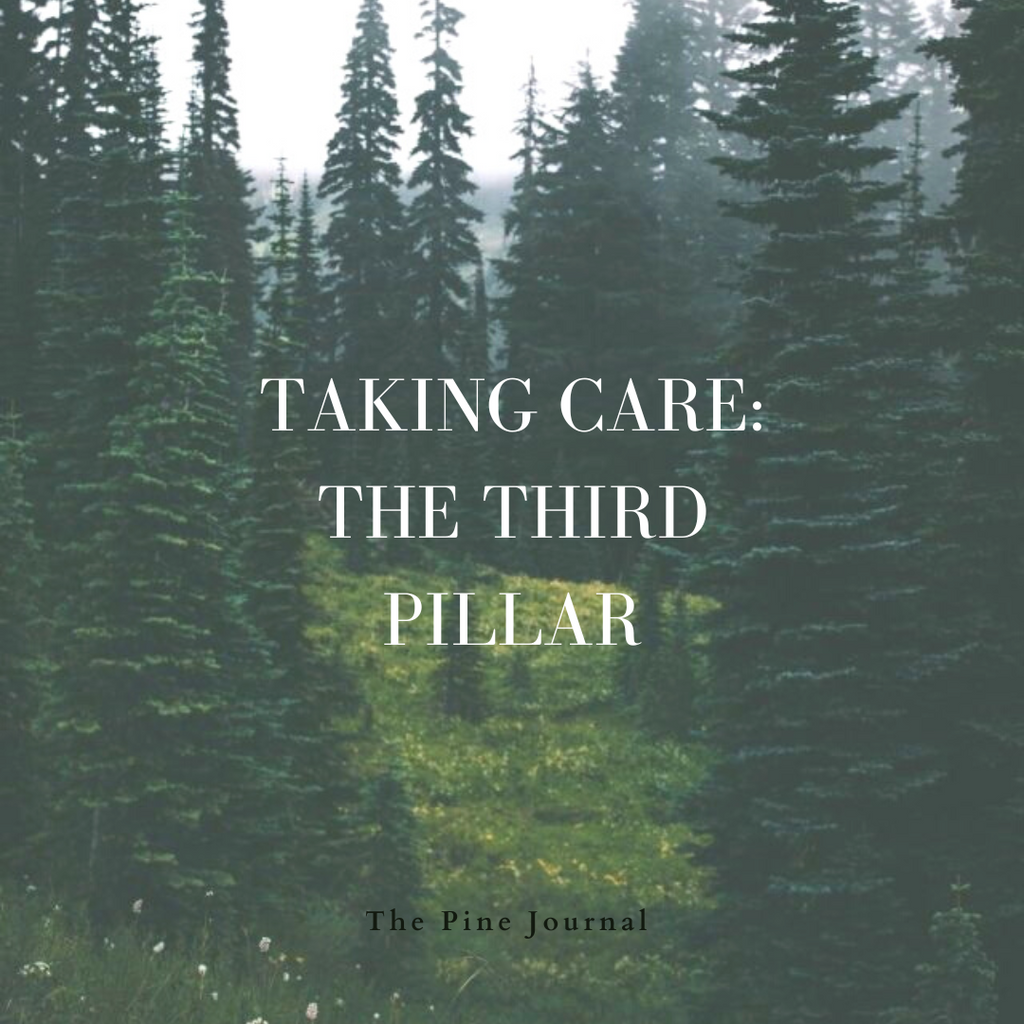Taking Care: The Third Pillar

Taking Care: The Third Pillar (of Ethics)
Taking care of self/environment. The two are not distinguishable. Being nature, we aren't separate from our environment and whatever happens in our environment will directly impact us. So, our third ethical pillar involves taking care.
In the second pillar we touched on how there's an ethical difference in buying products knowing they're harmful and choosing to buy them, and buying products with harmful ingredients unknowingly.
When you purchase these products (take lysol, for example) you're not only affecting your health when you buy and use it, you're also affecting the health of those around you. There's a chain reaction and we're seeing this play out with plastic in the ocean.
I believe we are nature, and as intelligent beings we have the ability to be cosmic stewards for the betterment of earth and all life forms. I believe nature has designed us to be her caretakers. And the first step to being a good steward is realizing that everything in nature is connected. So when we pollute the oceans with plastic, we'll end up eating that same plastic. But when we take care of our environments, our environments will take care of us.
I think Darwin got it wrong. I don't think nature works on the principle of conflict; it's not about war and survival of the fittest. I think nature works on the principle of trust and cooperation and beneficial relationships. And when something ceases to be cooperative and beneficial it becomes harmful to the overall ecosystem, and that causes conflict. This is something that Terence McKenna talked about in his book The Archaic Revival, who laid it out with an eloquence I won't attempt to paraphrase:
"Connectedness and symbiosis. Like plants, we need to maximize the qualities of connectedness and symbiosis. Plant-based approaches to modeling the world include awareness of the fractal and branching nature of community action. A treelike network of symbiotic relationships can now replace the model of evolution that we inherited from the 19th century [...] Later, more sophisticated observers (C. H. Waddington and Erich Jantsch) found not the War in Nature that Darwinists reported but rather a situation in which it was not competitive ability but ability to maximize cooperation with other species that most directly contributed to an organism's being able to function and endure as a member of a biome...
The matted floor of a tropical rain forest is an environment of great chemical diversity; the topology approaches that of brain tissue in its complexity. Within the network of interconnected roots, complex chemicals are being transmitted and received. Co-adaptive evolution and symbiotic relationships regulate this entire system with a ubiquitousness that argues for the evolutionary primacy of these cooperative strategies. For example, mycorrhizal fungi live in symbiosis on the outside of plant roots and gently balance and buffer the mineral-laden water that is moving through them to the roots of their host." (p. 221-222)
I believe we can play a beneficial role for our environments. By recognizing the natural importance of symbiosis and connectedness, we can develop real world strategies to help deescalate some of the harm we've caused to our environments, and forge a better path forward.
McKenna did too:
"Recycling. Like plants we need to recycle. On a cosmic scale we are no more mobile than plants [...] Plants are fixed. They cannot easily move to richer nutrients or leave an area if they foul or deplete it. They must recycle well. The fostering of a plant-based ethic that emulates the way in which the botanical world uses and replaces resources is sine qua non for planetary survival." (p. 222)
Refilling is a pragmatic approach to recycling well. It eliminates excess packaging, chemicals, and waste; and I believe it's the emulation of a plant based ethic.

Leave a comment